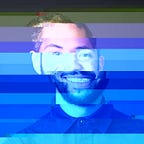What got us here, won’t get us out of here.
Designing public services in an entangled world. From Forsthoff to today.
Today, all organizations that provide services of general interest for our society are confronted with a double challenge: the digital and the ecological transformation. We fully believe this requires a paradigm shift in the way an organization plans, decides and manages itself in the 21st century. The central shift here is learning to deal constructively with the fact that many of the central categories that shaped the understanding of how we provide value are no longer clearly tenable today. It seems, we are more than ever confronted with inconsistencies that need to be translated into strategic and managerial projects again and again. Against this background, we propose a set of principles is proposed in order to be able to work not against but with this inconsistency. Think of it as an exemplary draft toward a New Statecraft of experimental governance, which thinks and acts genuinely post-pandemic, post-digital and post-humanistic.
A self-care society
In 1938, German sociologist Ernst Forsthoff coined the term „Daseinsvorsorge“ (literally: provision of existence) for the institutionalized support of people by their society. He was describing a common and long established practice of the modern state to take responsibility for the dignified survivability of its citizens. Although this practice changed in the course of the 20th century to a prioritization of “guaranteeing and enabling” this survivability by the modern welfare state, the goal of “establishing equitable living conditions” (Art. 72, Para. 2) remains in today’s constitution of Germany.
Today, however, new challenges and opportunities arise for a sustainable provision of general interest in the 21st century. The relevant areas of tension lie first of all between municipal service administration and the European internal market. They are being expanded by the emergence of an increasingly diversified society with a planetary-ecological awareness and by the growing relevance of digital technologies. From today’s perspective, the most momentous change processes are:
- the digital transformation, i.e. the increasing use of computers in almost all areas of society, and
- the ecological transformation, i.e. the fundamental change in our planetary ecosystem, which poses an existential threat to life forms.
That is not to say that the manyfold social challenges like systemic inequalities are less important or even pressing. They are, however, framed by these two meta-transformations.
New Mental Models for Administration: from Ego to Eco
It seems reasonable to assume that an adequate response to this change will also require a transformation of the classical patterns of thought and action of our institutions themselves. We can also refer to these patterns of action as mental models (Scharmer and Kaufer 2013) or as „EigenForms” (Kauffman 2005; von Foerster 1976), which produce similar results over and over again, regardless of the specific starting situation and the particular initial conditions.
Up to a point, this situational indifference — especially for a public administration! — is stabilizing and thus functional. However, in view of a digitally and ecologically interconnected world, the resulting and externalized costs are becoming increasingly critical to the system. In other words, they are hitting back at the system itself. What this can look like is shown by flood disasters as well as dying inner cities. This fighting back means that the boundaries between the internal categories of a system (ego) and their external effects (eco) are successively undermined: What used to be faded out as a negligible external effect now suddenly becomes relevant to one’s very own priorities and needs.
What is needed, then, is a new understanding that broadens the view beyond one’s own institution and learns to think in terms of interdependencies. Interestingly, the development of such an understanding is already laid out in the beginnings of the history of discourse around services of general interest. With the keyword borrowed from Max Weber of the “need for appropriation” (i.e., being dependent on the support of one’s environment), Forsthoff describes the incipient change in sociopolitical self-perception as early as the 1930s against the backdrop of an industrialized capitalism of urbanized modernity: away from individual subsistence and toward collective interdependence.
Hybrid Public Services
A change that is accelerating exponentially in the digital network society, in every respect: not only purely technological but also socio-biological dependencies play a role. In addition, there are self-reinforcing chains of effects and planning that, by predicting a possible future, influence that future itself (Esposito 2018). This can lead to economic crises like 2008-or to collective preventive action as in the Corona pandemic. The narrative of a modern hyper-individuation (Bratton 2021, 66ff.), which places the individual as the ultimate subject above all else, is facing its end as it increasingly confronts fragmented interdependencies and contradictory paradoxes.
This points to a present in which many constitutive categories that have shaped the modern state and its administration in the 20th century are becoming blurred: A municipal claim to subsidiarity, for example, is often in inherent conflict with European political integration. Philosopher of technology Daniel Hillis (2016) describes this pervasive shift as a move from the “Age of Enlightenment” to an “Age of Entanglement.” He outlines the shift from categorical distinctions such as public|private, digital|analog, today|tomorrow or even ego|eco to a logic of the hybrid and from a categorical either|or to a fundamental both|and: the digital is always also analog, the private is always also public, and man is always also part of his environment. This insight is the central paradigm shift of a networked society.
